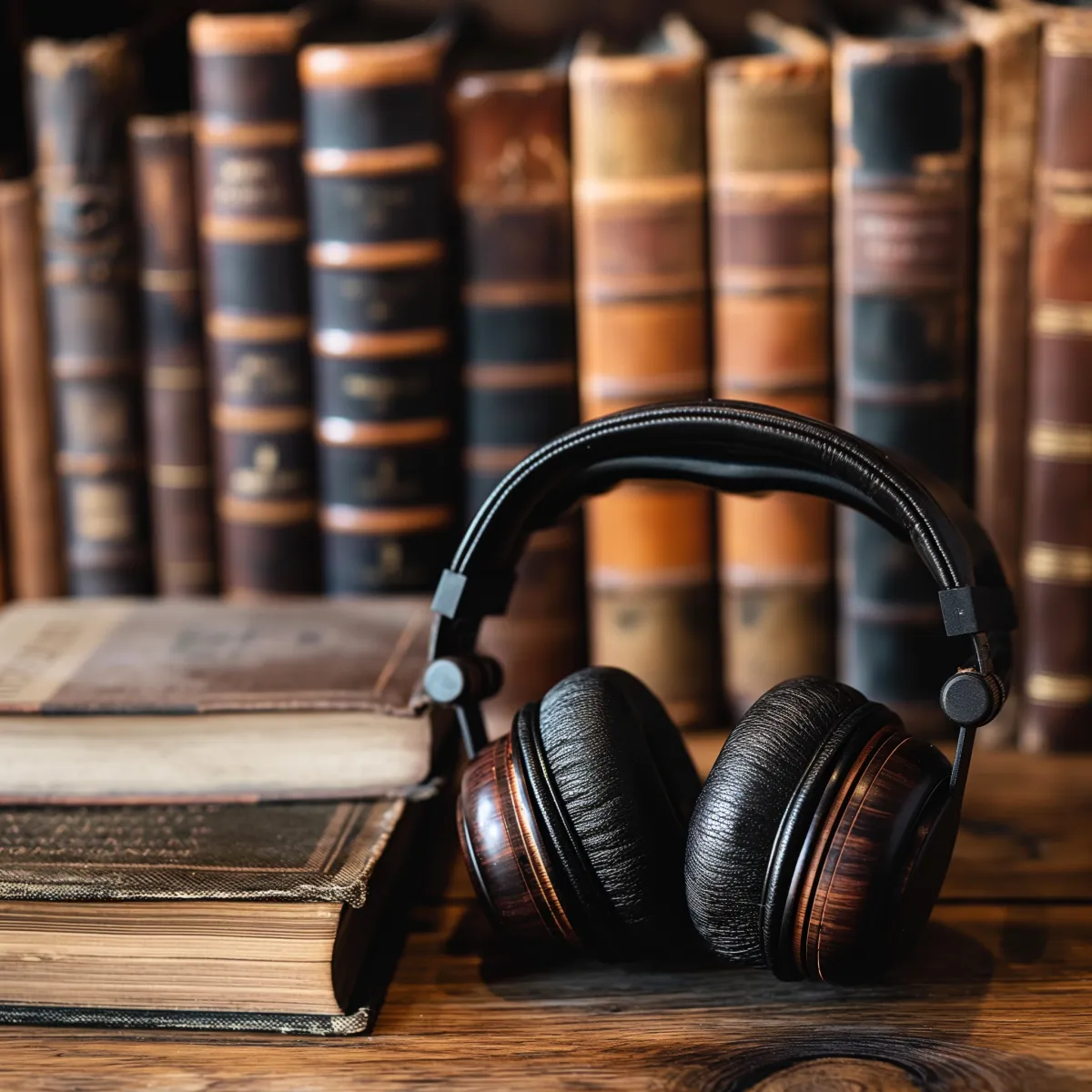BLOGS

The Legal Landscape of Podcasting and Audiobooks
he Legal Landscape of Podcasting and Audiobooks**
Navigating Copyrights, Royalties, and Permissions
As the world of digital media continues to expand, podcasting and audiobooks have become significant channels for content creators to share their work. However, navigating the legal landscape of podcasting and audiobooks can be daunting, especially for newcomers. Understanding copyrights, royalties, and permissions is crucial to ensure that your content is legally protected and that you avoid potential legal pitfalls.
Copyright Basics in Podcasting and Audiobooks
What is Copyright?
Copyright is a legal framework that gives creators exclusive rights to their original works, such as literary, musical, and artistic creations. In the context of podcasting and audiobooks, copyright protects the content you produce, whether it's a script, an audio recording, or music used in your episodes.
Importance of Copyright
1. Protects Your Work: Copyright ensures that your original content is protected from unauthorized use by others.
2. Monetary Benefits: It allows you to monetize your content through various channels, such as licensing and royalties.
3. Legal Recourse: If someone infringes on your copyright, you have the legal grounds to take action against them.
How to Secure Copyright
In many countries, your work is automatically protected by copyright as soon as it's created and fixed in a tangible form. However, registering your work with the relevant copyright office can provide additional legal benefits and make it easier to enforce your rights.
Navigating Royalties in Podcasting and Audiobooks
What are Royalties?
Royalties are payments made to copyright holders for the use of their work. In the podcasting and audiobook industries, royalties can be earned from various sources, such as streaming services, sales, and licensing agreements.
Types of Royalties
1. Performance Royalties: These are paid when your work is performed publicly, such as when an audiobook is streamed online.
2. Mechanical Royalties: These are earned when your work is reproduced, such as when an audiobook is downloaded or a podcast episode is streamed.
3. Licensing Fees: These are paid when you grant permission for others to use your work, such as when your podcast is featured on another platform.
How to Collect Royalties
1. Join a Performing Rights Organization (PRO): PROs, like ASCAP or BMI, help collect performance royalties on behalf of their members.
2. Use Digital Distribution Services: Services like Audible for audiobooks and podcast hosting platforms often handle royalty collection and distribution.
3. Register with Copyright Collecting Societies: These societies help track and collect mechanical royalties for creators.
Permissions and Licensing in Podcasting and Audiobooks
Why Permissions Matter
Using copyrighted material without permission can lead to legal issues, including fines and lawsuits. Whether it's music, sound effects, or written content, obtaining the necessary permissions is crucial.
Types of Permissions
1. Sync Licenses: Needed when using music in your podcast or audiobook.
2. Mechanical Licenses: Required for reproducing copyrighted music in your work.
3. Public Performance Licenses: Needed if your podcast or audiobook will be played in public spaces.
How to Obtain Permissions
1. Direct Licensing: Contact the copyright holder directly to negotiate a licensing agreement.
2. Stock Libraries: Use royalty-free music and sound effects from reputable stock libraries.
3. Creative Commons: Utilize content licensed under Creative Commons, ensuring you comply with the terms of the license.
Case Study: Navigating Legal Issues in Podcasting
Mark's Podcast Journey
Mark, an aspiring podcaster, faced legal challenges early in his journey. He used popular music tracks in his episodes without obtaining the necessary licenses. Consequently, he received a cease-and-desist letter from a major record label.
Steps Mark Took to Resolve the Issue
1. Removed Infringing Content: Mark immediately took down the episodes containing unlicensed music.
2. Educated Himself on Copyright Law: He invested time in understanding the legal requirements for using copyrighted material.
3. Sought Legal Advice: Mark consulted with an intellectual property attorney to ensure compliance moving forward.
4. Licensed Music Properly: He began using music from royalty-free libraries and obtained proper licenses for any commercial tracks.
Outcome
By taking these steps, Mark was able to relaunch his podcast legally and avoid further legal issues. His experience underscores the importance of understanding and adhering to copyright laws in the podcasting industry.
Practical Tips for Staying Legally Compliant
1. Educate Yourself: Stay informed about copyright laws and how they apply to your content.
2. Document Everything: Keep records of all permissions and licenses obtained for your podcast or audiobook.
3. Consult Professionals: When in doubt, seek advice from intellectual property attorneys or legal experts in the field.
4. Use Licensed Content: Always ensure that any third-party content you use is properly licensed.
Interactive Segment: Reader's Challenge
We challenge you to review your podcast or audiobook content and ensure all necessary permissions and licenses are in place. Implement one new tactic, such as joining a PRO or using royalty-free music libraries, and share your experiences with us.
Conclusion
Understanding the legal landscape of podcasting and audiobooks is essential for any content creator. By navigating copyrights, royalties, and permissions effectively, you can protect your work, monetize your content, and avoid legal pitfalls. Stay informed, seek professional advice, and join our community to ensure your podcasting and audiobook journey is both legally compliant and successful.
Testimonials

I genuinely don't know what I would do without Jeremy and his team. Box7 Media is a partnership that is essential for my business.
Rachel Erickson, Owner of Unmarked Street

What I really appreciate about them is how they keep me on my toes. It's like having a friendly nudge to make sure I don't fall behind schedule, which is super helpful.
Jeff Brekken, Owner of iConic HR
320-420-2105
jeremy@box7media.com
www.Box7Media.com

